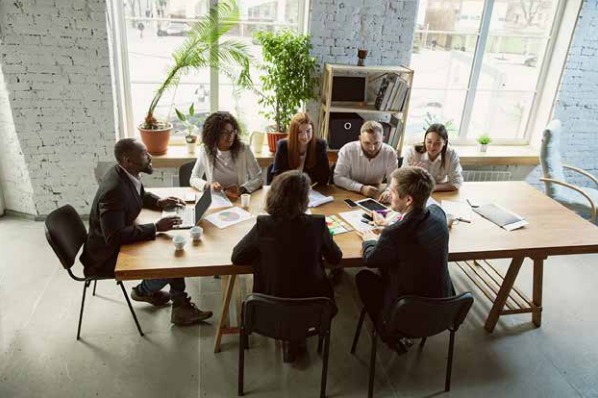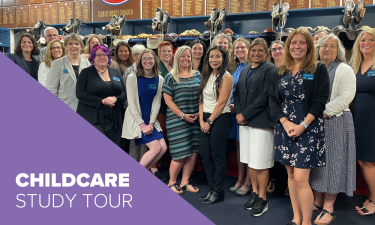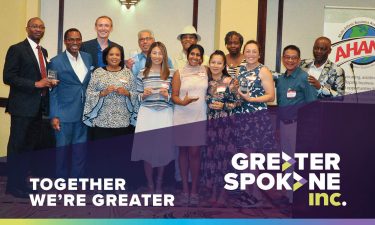Who makes the windows in space?
Article republished with permission: https://medium.com/futuremakers/who-makes-the-windows-in-space-7d22fbdc657
Devon Tooley is a Future Maker. As a Mt. Spokane High School and UW graduate, Devon now works with Siemens as Software Product Consultant to assist dozens of clients across the aerospace industry to make space travel possible. Recently, Devon is working on using cutting-edge technology to make glass that will end up as windows on the International Space Station, portals for intergalactic experiments, observations of Earth, and the backdrop to whimsical photographs of floating astronauts.

“There were these pieces of glass, about as thick as cheesecake, made from chemicals and air…” Devon Tooley’s telling us what she’s been up to at work recently. “It’s this ancient process, of making something out of nothing, but we’re using cutting-edge technology to make it even better.” The glass in question will end up as windows on the International Space Station, portals for intergalactic experiments, observations of Earth, and the backdrop to those familiar, whimsical photographs of floating astronauts.
As a Software Product Consultant, Devon works with dozens of clients across the aerospace industry who are experts in their field. They work together to design fixes to push forward the incredible work they’re already doing. “If you’re a rocket scientist, you’re immersed in your work.” They don’t have time to learn about the intricacies of the software facilitating the bigger picture within their work.
Devon also collaborates with her clients to broaden the scope of their work. That could be applying internet capabilities to an airplane wing so engineers can preempt a failure before it happens, smoothing the process of ordering new parts at exactly the right moment or design visualization. “You’d be surprised at the number of customers who still have hand-drawn engineering plans on drafting paper.”
When people hear the word ‘aerospace’, the first thing they think of is airplanes. But it’s also, she says, “all the little pieces that go into making space travel possible.” The cheesecake space glass factory was just one of the many customers she travels to see. She goes everywhere, “from little towns in Kansas to Californian beaches,” or Sweden, where she’s heading later this month.
Conjuring up fixes for mad-hatter products you might never think of sounds like a fictional job, something you’d read about in a children’s storybook. Devon’s also worked with HondaJet on its lightweight six-seat private aircraft, and before that, ‘buses’ that move equipment into outer space. “What’s cool about my job is that you’re not always working on the same thing.”
Growing up in Alaska, Devon loved writing and learning about history at school. But while studying History at the University of Washington in Seattle, she kept being drawn towards software. She taught herself how to code and took side jobs that allowed her to get immersed in unpicking problems. The path she’d assumed she would take then took her in a different direction.
Now she’s in Richmond, Virginia, just south of Washington DC, and working with Siemens. “It’s a good time to be here,” she says. Changes within the industry are happening rapidly, and “we’re embracing the new; the most significant change being the Internet of Things.”
Before this role, she worked at a video game startup in Upstate New York, with a young, intelligent team who relished the excitement and flexibility of startup life, a culture that’s become something of a lifestyle brand in its own right. She hesitated over leaving a place buoyed by youthful energy.
But the breadth of experiences she could enjoy in this new role drew her away. “One person can have so many different careers here. I like that it’s a place for people who want to be constantly learning.”
Devon is a Future Maker — one of the 351,000 talented people working with us to shape the future.




